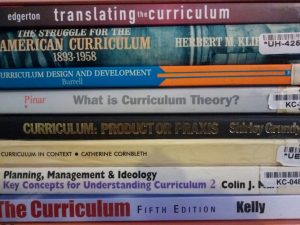If you want to be a writer, you must do two things above all others: read a lot and write a lot.
In “On Writing: A Memoir of the Craft”, Stephen King shares some of his life’s experiences that have made him one of the most prolific and productive writers in the modern era, albeit in the world of fictions.
Writing is not life, but I think that sometimes it can be a way back to life.
The book is full of personal anecdotes that shaped and continue to inform his writings.
The word is only a representation of the meaning; even at its best, writing almost always falls short of full meaning.
It’s best to have your tools with you. If you don’t, you’re apt to find something you didn’t expect and get discouraged.
He talks about the writing process; the writer’s toolbox relating to a childhood experience he had with one of his uncles while that uncle of his was replacing a window in their house. King categorises the writer’s toolbox into three layers, with the topmost layer representing the most important tools that any writer will need. The second layer are filled with those necessary tools that a writer will need and the third layer is full of tools that will serve as icing on the cake for a writer.
Writing is refined thinking.
You learn best by reading a lot and writing a lot, and the most valuable lessons of all are the ones you teach yourself.
The recurrent theme in King’s book is that to be a writer and more importantly, to be a good one at it, there is need to do awful lots of reading – not for learning about writing but for the pleasure of reading for its own sake, allowing different writers’ styles simmer into one’s conscious and subconscious minds. He emphasises that to write is to read a lot and to write a lot. He extols the old school habit of writing is hard work. And to be good at it, it will involve thousands of hours of writing and reading.
Books are a uniquely portable magic. I usually listen to one in the car… and carry another wherever I go.”
The real importance of reading is that it creates an ease and intimacy with the process of writing…”
Can I be blunt on this subject? If you don’t have time to read, you don’t have time (or the tools) to write. Simple as that.
Reading is the creative centre of a writer’s life.
On his reading, he claims to be a slow reader but still gets about 70 to 80 books read yearly with about 6 to a dozen of them as audiobooks, and most of the books he reads are fictions.
His working class American family background with his lived experiences of working in a factory, a school and his mother’s working in an industrial dry cleaning company shaped him as a writer. His brother was another influential character in his childhood life. Also, the bedridden sickness he experienced as a child made him to devour a lot of books even though he was just 7 years old. That period also shaped part of his writing life as an adult.
There have been times when for me the act of writing has been a little act of faith, a spit in the eye of despair.
There were rejections and the loss of a loved one along with falling into alcoholism, cocaine addiction and depression during the process of becoming an established writer. At the point of abyss of destruction he had to make a hard choice between two of the most important aspects of his life. There were days of failed hopes and the occasional successes to the sudden overnight transition from being a struggling wage earner to a paid writer in hundreds of thousands of dollars, just as a result of a single letter that arrived in his apartment through the post.
It starts with this: put your desk in the corner, and every time you sit down there to write, remind yourself why it isn’t in the middle of the room. Life isn’t a support-system for art. It’s the other way around.
In summary, King’s On Writing is an excellent book on life’s experiences and the act of writing. To King to write is to put a shift in on a daily basis. And writing isn’t for the faint hearted but for those that can work their socks off. It isn’t about just talent, of course we all hear about people like Shakespeare, but it is more about commitment, consistency, reflections, evolving and improving.
If God gives you something you can do, why in God’s name wouldn’t you do it?
The book is a brilliant read and is full of wisdoms and tools from a writer that knows his onions. It’s a book that is good to explore to have a clearer and better understanding on what it takes to become a writer or a better one indeed. But if you have a friend or colleague who is a literary critic, please do not recommend the book to the person, if you value your relationship with that individual.
*All quotes are from On Writing: A Memoir of the Craft by Stephen King.




